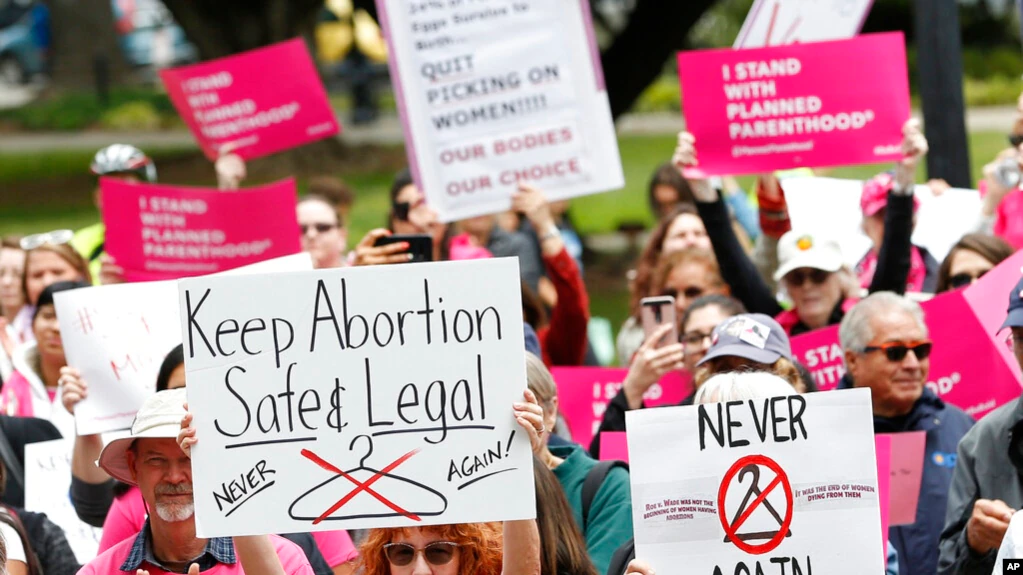California will become a refuge for women
The state of California will pay all costs for women planning abortions, both those living in the state and those who travel from other states for the procedure.
Los Angeles resident Jay Girardi once already protested for abortion rights, she says, and she never thought history would repeat itself.
“I fought for abortion rights back in the ’60s so that women would stop having these life-threatening procedures illegally, I don’t want to see all the things my sisters had to go through again. I saw with my own eyes how these procedures were done in bathrooms, I saw women bleeding to death. I don’t want to do it again,” says J.
After word leaked that the U.S. Supreme Court may soon overturn the constitutional right to abortion, thousands of protesters, not just women but men as well, were on the streets of Los Angeles. Solven came along with his family. He believes that if the court decides to ban, it will set the country back half a century.
“Only the woman decides whether or not to give birth. With these bans we are being robbed of our choices, in America we grew up believing that we had the right to decide and choose what to do,” Solván said.
Another protester, Melissa, says she was shocked to hear that the right to abortion could be taken away from women.
“I live in Los Angeles, it’s different here, and for women in other cities, abortion may simply become unaffordable, and the thought of the danger they could be in without being able to have the procedure done legally and safely really scares me,” Melissa says.
If the court overturns the landmark Roe v. Wade decision from 50 years ago, it’s likely that states will be given the right to decide for themselves whether to ban abortion. California is one of the regions where abortions will be allowed, in fact, state officials have allocated an additional $57 million to prepare California for “sanctuary” status for women from states where abortions may soon be banned, says UCLA law professor Kara Franklin. She expects that half of U.S. states may not only impose abortion bans, but also prosecute those who go to other states for abortions.
“California will help low-income women come to California from other regions and will reimburse clinics for the cost of these procedures. Also, state officials are working to try to legally protect women who have abortions here from prosecution by other states. And California’s governor wants to pass legislation that would provide tax incentives for companies that want to move their businesses from states with abortion restrictions to California,” the professor says.
The ban on abortions in the United States has not been officially adopted, but the experts say that the judges are unlikely to change their decision. Eugene Volokh, a professor at the University of California at Los Angeles is one of those who believes the judges won’t change their minds.
“As far as I know these judges, and I know some of them quite well, they’re not going to change their mind simply because of the protests, partly because, of course, they knew there would be protests, they didn’t know there would be a leak, but they knew there would be protests against the decision,” the professor believes.
In California, those who support the abortion ban also make themselves known by coming out to protest. They consider abortion to be murder. John, a supporter of the abortion ban, he and his associates came out to protest those in favor of women’s right to choose. At one point, a scuffle broke out, and police had to break up the protesters.
“We came here because, we are against abortion. Scientifically, a fetus at the moment of conception is already a child,” John says.
Opponents of the abortion ban, on the other hand, are convinced that only the woman herself can decide the issue related to termination of pregnancy. Human rights activists promise to continue protesting, and say that their main goal: to prevent the state from interfering in private life.
